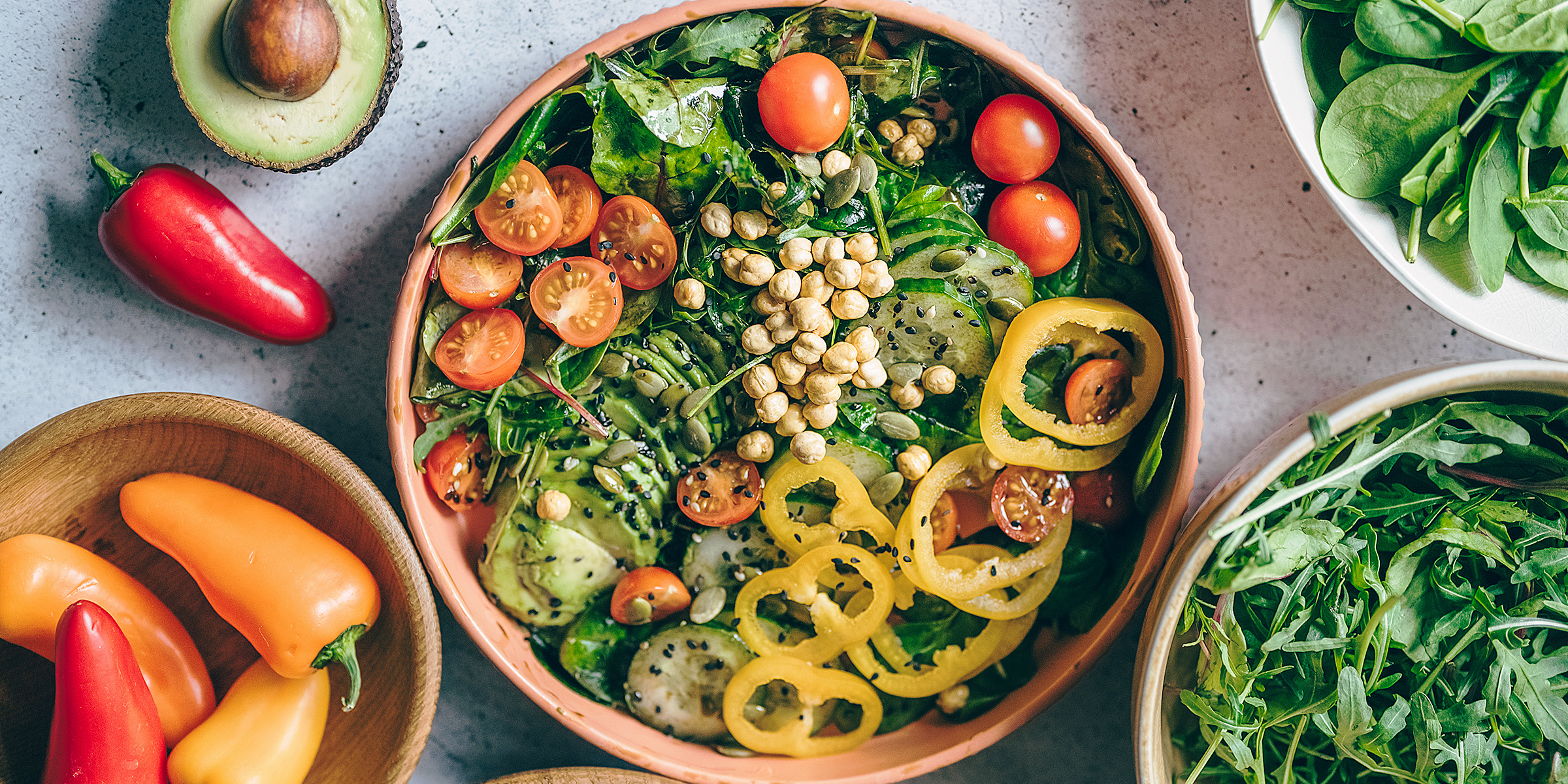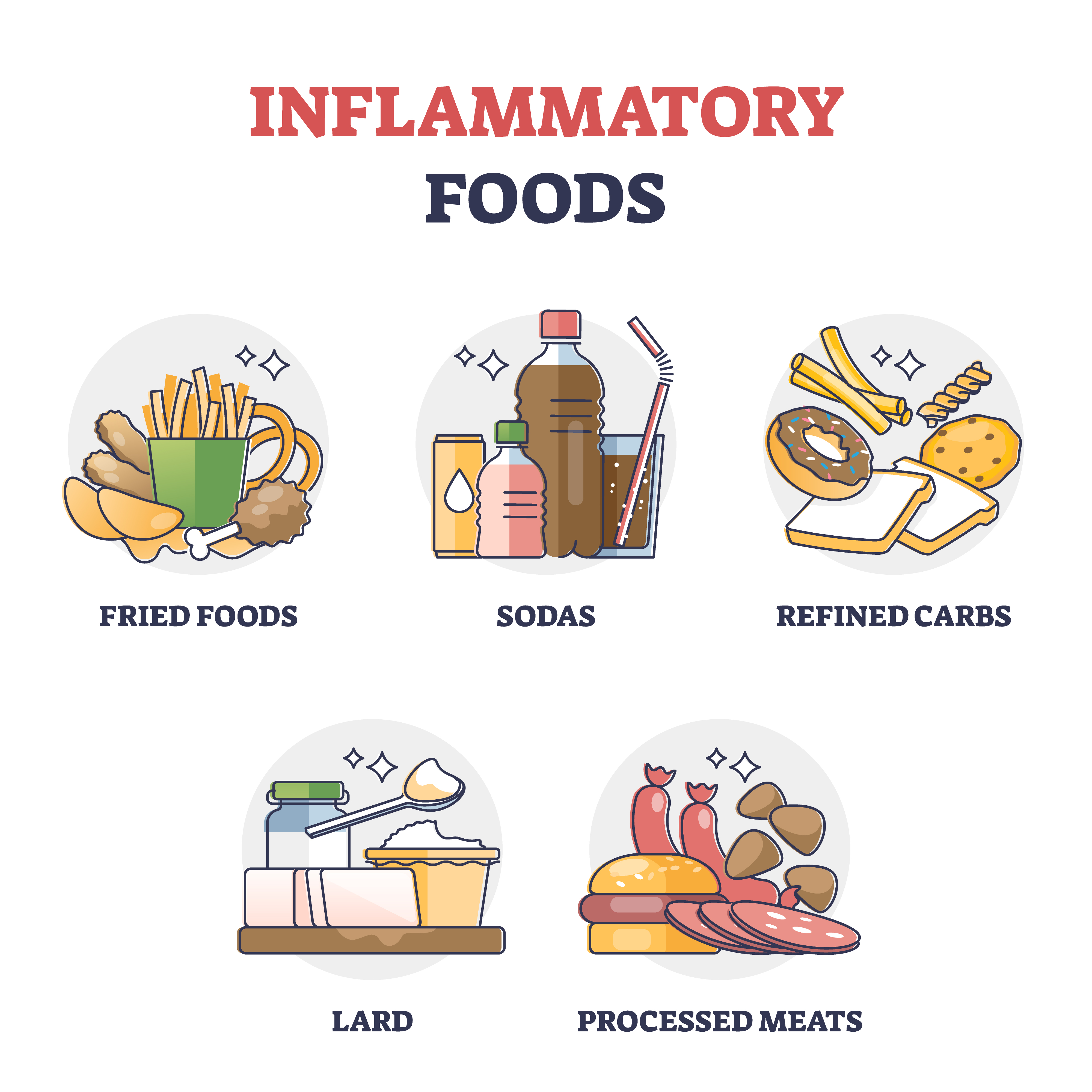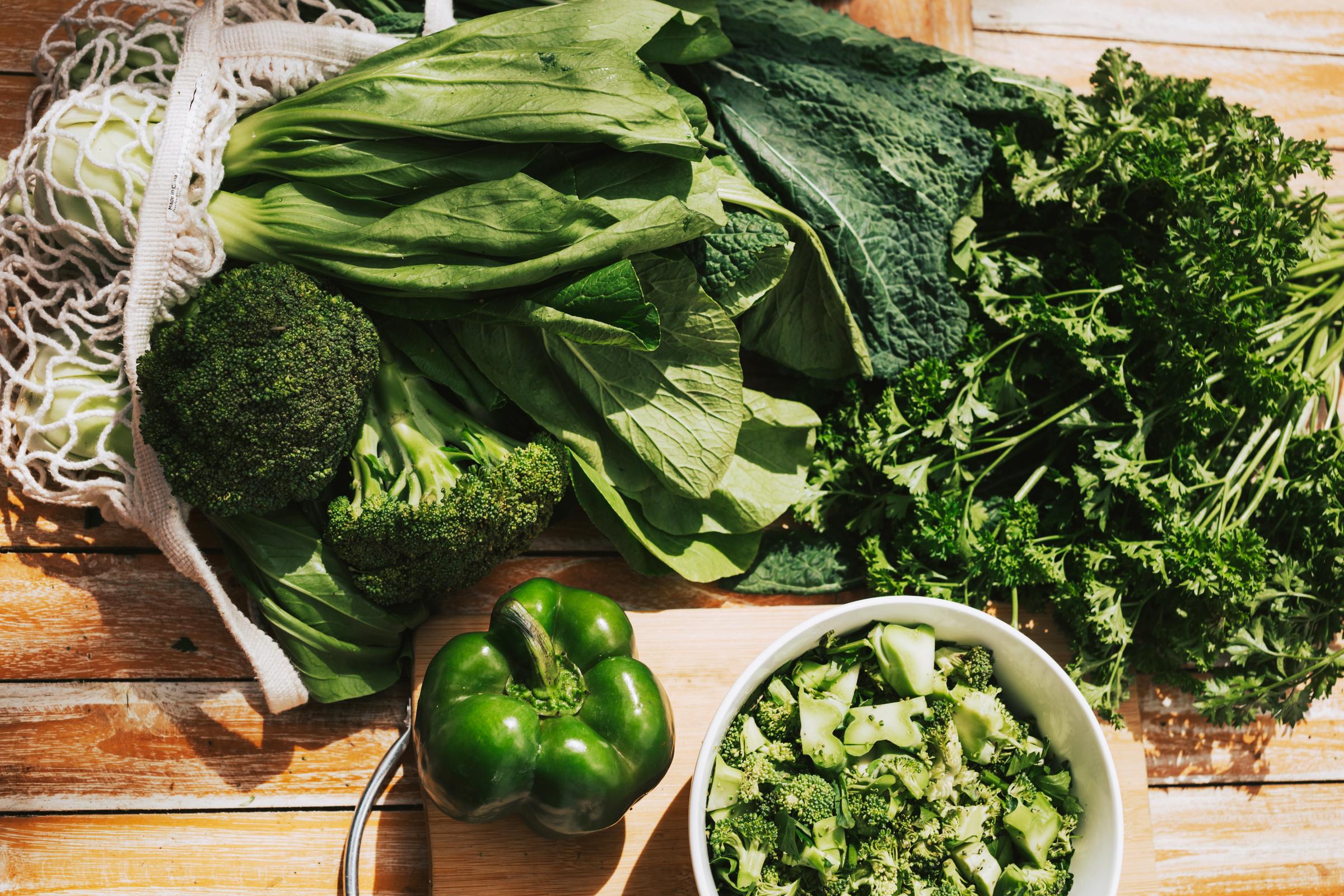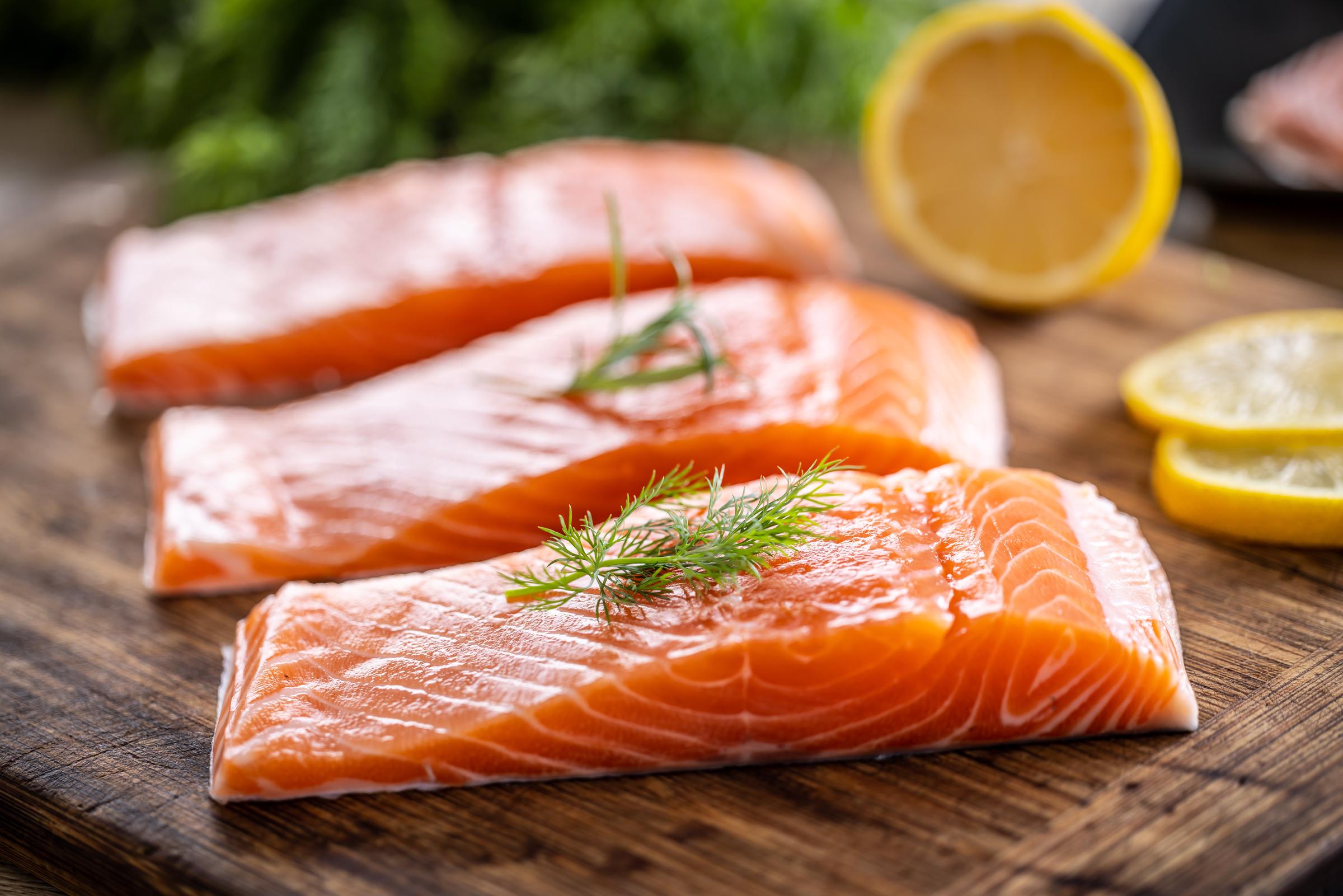
Eat Your Way to Healthy Aging: The 3 Best Anti-Inflammatory Foods
As we grow older, the risk of developing chronic diseases — from cancer to Alzheimer's — increases. That's why it's imperative to watch our health and do everything we can to stay sharp, right down to what we eat.
Many of the major diseases that too many of us have succumbed to — including cancer, heart disease, diabetes, and Alzheimer's and depression — have been linked to chronic inflammation.

An illustration showing someone with chronic inflammation | Source: Getty Images
That's why, in addition to managing stress, staying active, and making other healthy lifestyle choices, eating ant-inflammatory foods is one of the best ways to protect your body from inflammation and potentially extend your lifespan.
"Many experimental studies have shown that components of foods or beverages may have anti-inflammatory effects," explains Dr. Frank Hu, professor of nutrition and epidemiology in the Department of Nutrition at the Harvard School of Public Health.
Generally, anti-inflammatory foods include ingredients that are high in vitamins, fiber, antioxidants, and unsaturated fats, which are considered "good" fats. But before we head to the grocery store, let's understand what inflammatory foods are.

A full shopping cart in a grocery aisle | Source: Getty Images
What Inflammatory Foods Should You Avoid?
While the term "inflammatory" might sound fearsome, it's actually a normal biological response that most, if not all humans experience. In fact, some inflammation is actually necessary to stay healthy.
This biological response occurs when your body recognizes anything foreign or detects some form of tissue damage or infection. It triggers a wave of cellular responses, which work to heal the affected area.

Woman drinking syrup | Source: Getty Images
You might experience swelling or pain, which indicates temporary or "acute" inflammation. However, when it occurs chronically, it can lead to conditions such as arthritis, diabetes, and cancer.
That's why it's important that you avoid or limit your consumption of inflammatory foods such as:
- Refined carbohydrates, such as white bread and pastries
- Red meat (burgers, steaks) and processed meat (hot dogs, sausage, bologna)
- Sugar-sweetened beverages like canned tea and soda
- Foods high in added sugar such as candy, syrup, jelly
- Fried foods, such as donuts and french fries
- Trans fats such as margarine, refrigerated biscuits, nondairy coffee creamers

A graphic showing inflammatory foods | Source: Getty Images
Top 3 Anti-Inflammatory Foods
Leafy Greens
Leafy greens — such as spinach, kale, and arugula — are already a staple in many households and a great addition to daily meals. According to Johanna P. Salazar, MS, RDN, a registered dietitian nutritionist and founder of Healing Nutrition, they're rich in vitamins A, C, and K, all of which help the body fight inflammation.
Plus, the best part is how versatile they are when you cook them. "Leafy greens are also high in antioxidants like lutein and beta-carotene, [which] are known for reducing inflammation caused by free radicals in the body," Salazar explains.

Leafy greens | Source: Getty Images
Tomatoes
No matter how you enjoy them — pureed, as a paste, a sauce, or tossed in a salad — tomatoes are another versatile ingredient that you likely already have in your kitchen and are rich in anti-inflammatory properties.
They contain lycopene, which is a powerful antioxidant that regulates inflammation by reducing the formation of pro-inflammatory molecules in the body. "Tomatoes are also rich in vitamin C, potassium, and beta-carotene, all of which help fight inflammation and prevent disease as well," says Salazar.

Tomatoes | Source: Getty Images
Fatty Fish
Whether you enjoy sardines or savory salmon, fatty fish will be one of your best fighters against inflammation. A lean protein source, fatty fish contains omega-3 fatty acids that have an inflammation-lowering effect on the body.
Maddie Pasquariello, MS, RDN, a registered dietitian based in New York City, explains that omega-3 fats even have cell-membrane–altering abilities that prevent inflammatory mechanisms in the first place. The American Heart Association recommends eating two 3-ounce servings of fatty fish per week.

Raw salmon fillets | Source: Getty Images
Additional anti-inflammatory foods you might be interested in include nuts, berries, avocados, dark chocolate, olive oil, and turmeric. By making small, intentional changes to your diet and choosing foods that naturally reduce inflammation, you can support your body's long-term health and vitality.
The information in this article is not intended or implied to be a substitute for professional medical advice, diagnosis or treatment. All content, including text, and images contained on AmoMama.com, or available through AmoMama.com is for general information purposes only. AmoMama.com does not take responsibility for any action taken as a result of reading this article. Before undertaking any course of treatment please consult with your healthcare provider.
